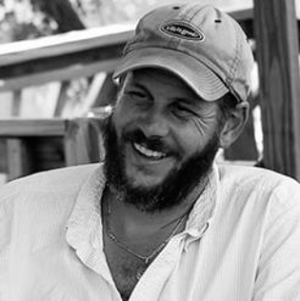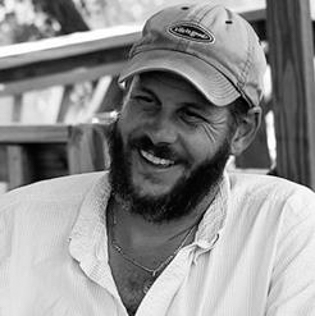Why did you become a biologist?
A deep love of the outdoors lead me to a career in Biology. Upon graduating high school, my family drove me to Springer Mountain, Georgia, from there I headed north on the Appalachian trail, searching for purpose. The plants and animals amazed me along my journey north and I decided to pursue a career in biology.
When did you know this was your career choice?
My original goal was to teach high school Biology, so I took the courses required focusing on organismal biology and evolution and avoided the ones that I didn't like (Genetics and Molecular Biology). Finally in my senior year, I was forced to finish my check-sheet and had to take Genetics and Molecular Biology to graduate. That single semester changed my worldview forever. Upon graduation, I quickly applied to graduate school and developed a research project connecting molecular genetics and evolutionary biology. The power of genetics has allowed me to explore many facets of evolutionary biology.
Where are you originally from and how did your childhood influence your career decision?
I was born in Victoria, Texas (on the gulf coast), but my family moved several times between Texas and Pennsylvania. Most of my formative years were spent 40 minutes south of Philadelphia in a small town called Kennett Square (the mushroom capitol of the world). I don't think there is a connection between where I grew up and my career choice. I think it had a lot more to do with my folks dragging us to every national park on the East coast and beyond. I feel in love with the Smoky Mountains and searched for ways to explore them on my own.
What courses do you currently teach?
I currently teach Introduction to Genetics (Bio2400), Introduction to Genetics Laboratory (Bio2410) and Molecular Evolutionary Genetics and Genomics (Bio3532/5532)
Are you planning to teach any new courses in the near future?
I am currently developing a course in Conservation Genetics. This course will focus on the fundamentals of population genetics and their application in conservation biology.
What do you like most about teaching?
My favorite part of teaching is the student interactions. I enjoy talking to students about genetics and how it is the universal language that influences all of life.
What is the overarching goal of your research program?
My research group uses genetics to explore the world around us. The central theme of the lab is to use natural genetic variation to investigate evolutionary processes from population genetics to genomics.
Can you give us a synopsis of your research projects?
There are three main foci within my research lab. The 1st is studying genome level processes that drive diversification. This research focuses on the role of polyploidy and transposable elements in shaping plant genomes. The 2nd area is focuses on agricultural development for subsistence farmers on the continent of Africa. In these studies we focus on a parasitic plant known as Witchweed and the natural diversity of grasses across the African continent. The 3rd area focuses on conservation genetics of rare plant species throughout the Southeastern United States. This work focuses on using genetics to inform policy makers on appropriate conservation strategies.
What do you like most about doing research?
I am a natural born problem solver having loved puzzles and complex games from a young age. The genetic puzzles I study today are the most complex I have ever tackled and I enjoy the challenge.
What advice do you have for undergraduates/graduates pursuing degrees in biology these days (or advice on how to be a successful student at App State)?
The best advice I can offer is to develop a work ethic and follow what you enjoy most. While at Appalachian I highly recommend finding a mentor and conducting independent research. These opportunities (while time consuming) help you develop technical skills and further deepen your classroom knowledge with hands on experience.

